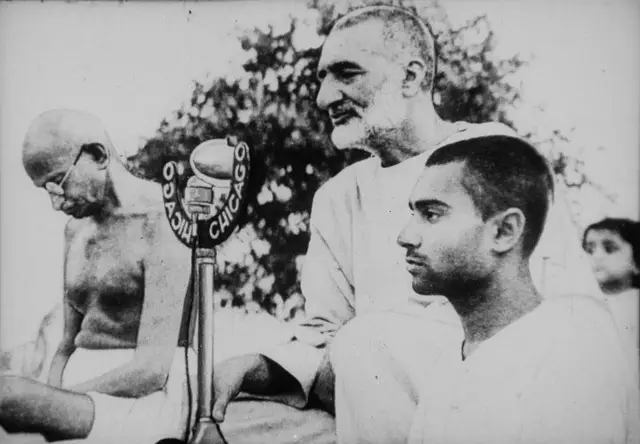The idealist and pacifists both strive for a world without war, but their methods of achieving this differ greatly. While idealists seek to change the world through moral principles and engaging in democratic discourse, pacifists rely on peaceful actions such as demonstrations, civil disobedience or boycotts to bring about social justice.
Who is an idealist?
An idealist is someone who believes in the possibility of achieving a perfect world, often guided by a set of values or principles that they consider to be right and just. They tend to believe that people are capable of achieving great things and that there is always room for improvement. Idealists often envision a society that is based on principles such as equality, justice, compassion, and love.
Who is a pacifist?
(Image by Maria_Tsolakidou from Pixabay )

A pacifist is someone who believes that violence is never the answer and that all conflict can be resolved without resorting to force. Pacifists typically oppose war and any form of violent conflict and advocate for nonviolent methods of conflict resolution. Many pacifists are also conscientious objectors, refusing to participate in military service or bear arms.
An idealist Vs. A pacifist – Difference
The main difference between an idealist and a pacifist is that an idealist believes in the perfectibility of people and society, while a pacifist does not. Idealists believe that it is possible to achieve a state of affairs in which there is no war, poverty, or other forms of violence. Pacifists, on the other hand, do not believe that such a state is possible, and instead focus on working to reduce the amount of violence in the world.
An idealist is someone who believes in the possibility of achieving a perfect world, guided by a set of values or principles they consider to be right and just. They may believe that people are capable of achieving great things and that there is always room for improvement. Idealists often envision a society that is based on principles such as equality, justice, compassion, and love.
On the other hand, a pacifist is someone who believes in the principle of non-violence and rejects the use of physical force or aggression to achieve their goals. Pacifists believe that conflicts can and should be resolved through peaceful means, such as diplomacy, negotiation, or nonviolent protest.
While idealists may share a similar vision of a better world that emphasizes values such as peace and justice, they do not necessarily reject the use of force or violence in certain circumstances, such as in cases of self-defense or to protect the innocent. Pacifists, however, reject the use of force altogether, even in cases of self-defense. They believe that nonviolent means are always superior to violent ones and that using violence only perpetuates a cycle of violence and destruction.
What is idealist theory of peace?
The idealist theory of peace holds that war is not inherent in human nature, and that it can be eliminated by changing the way we think about and interact with each other. This theory has its roots in the work of thinkers like Immanuel Kant, who argued that reason could be used to bring about a more peaceful world. Idealists believe that if we can change our attitudes and behaviors, we can create a more peaceful world.
What is a pacifists theory of peace?
A pacifist theory of peace is one that holds that violence is never justified and that conflict should always be resolved through peaceful means. Pacifists believe that war is always wrong and that it can never achieve its goals. They also believe that violence only begets more violence, and that it is always better to resolve conflicts through negotiation and compromise.
What is difference between idealism and realism?
In short, idealism is the belief that things can be improved, while realism is the belief that things are as they are and cannot be changed.
Idealists believe in progress and hope for a better future. They see the world as it should be, not as it is. Realists, on the other hand, focus on the here and now. They accept the world as it is and don’t believe that things can be significantly changed.
Both perspectives have their merits. Idealism can motivate people to make positive changes in the world. Realism can help people accept the world as it is and avoid disappointment.
What is an idealist and pacifist in philosophy?
When it comes to philosophy, an idealist is someone who believes in the power of ideas. They believe that ideas can change the world and that they have the ability to shape reality. Idealists are often passionate about their beliefs and can be very persuasive in their arguments. However, they can also be very unrealistic and may not always follow through on their commitments. Pacifists, on the other hand, are those who believe in the power of peace. They believe that violence only begets more violence and that it is never the answer. Pacifists often work towards conflict resolution and seek to find peaceful solutions to problems. While they may not always succeed, their intentions are always good.
Was Gandhi an idealist or a pacifist?
(Image by WikiImages from Pixabay )

Gandhi is often considered an idealist and a pacifist, but it is important to understand the difference between the two concepts. An idealist is someone who believes in the perfection of humankind and its ability to achieve great things. A pacifist, on the other hand, is someone who believes in peace above all else and is willing to use non-violent means to achieve it. Gandhi was certainly both of these things, but he was also a pragmatist who understood that change could only be achieved through action. He believed that violence was never justified, even in the pursuit of justice, and that true change could only be brought about through non-violent means. This combination of idealism and pragmatism made Gandhi one of the most effective leaders in history and helped him achieve amazing things.
How do you know if you are an idealist or pacifist?
If you’re wondering whether you are an idealist or a pacifist, there are a few key differences between the two that can help you make your determination. Idealists tend to believe in the perfectibility of humankind and strive for justice and equality, while pacifists typically advocate for non-violent conflict resolution and oppose war and violence. While both groups may work towards similar goals, they often do so in different ways.
Idealists may be more likely to take direct action to achieve their goals, such as protesting or working with grassroots organizations. They may also be more willing to use force if they believe it is necessary to protect innocent people or bring about social change. Pacifists, on the other hand, generally believe that violence is never justified and that peace can only be achieved through nonviolent means. They may work towards conflict resolution through diplomacy or mediation, and are often active in promoting nonviolence education.
So, which one are you? If you find yourself empathizing with both descriptions, you may be a pacifist-idealist – someone who believes in the power of love and compassion to transform the world but is also willing to fight for justice when necessary. No matter what label you choose, remember that working towards peace is always worth our time and energy.
What are the benefits and drawbacks to society from idealists and pacifists?
Idealists and pacifists have different views on the use of violence and force to achieve political goals. Idealists believe that it is possible to achieve peace and justice through nonviolent means, while pacifists believe that all violence is unjust and should be avoided.
There are benefits and drawbacks to both idealism and pacifism. Idealists hope for a world where conflict can be resolved without resorting to violence, which would lead to fewer deaths and injuries. Pacifists believe that all violence is wrong, no matter the cause, and that avoiding violence will lead to a more peaceful world.
The benefit of idealism is that it offers a way to resolve conflict without resorting to violence. The drawback is that idealists may be too idealistic, and their plans may not work in the real world. The benefit of pacifism is that it avoids all forms of violence. The drawback is that pacifism may allow injustice to continue if there are no other ways to stop it besides using force.
Who are some of history’s famous idealists and pacifist?
History is full of people who have fought for what they believe in, without resorting to violence. Here are some of the most famous idealists and pacifists who have ever lived:
- Mahatma Gandhi was an Indian political leader who fought for India’s independence from British rule. He is also famous for his philosophy of nonviolent resistance.
- Martin Luther King Jr. was an American civil rights leader who fought for equality and justice for all Americans, regardless of race. He too believed in the power of nonviolent resistance.
- Nelson Mandela was a South African anti-apartheid activist who spending 27 years in prison before becoming his country’s first black president. He is remembered for his long struggle to end racial segregation and discrimination in South Africa.
- The Dalai Lama is the spiritual leader of Tibetan Buddhists and has been living in exile since China occupied Tibet in 1959. He advocates for a “middle way” approach to the Tibet issue, which calls for autonomy within China rather than complete independence.








